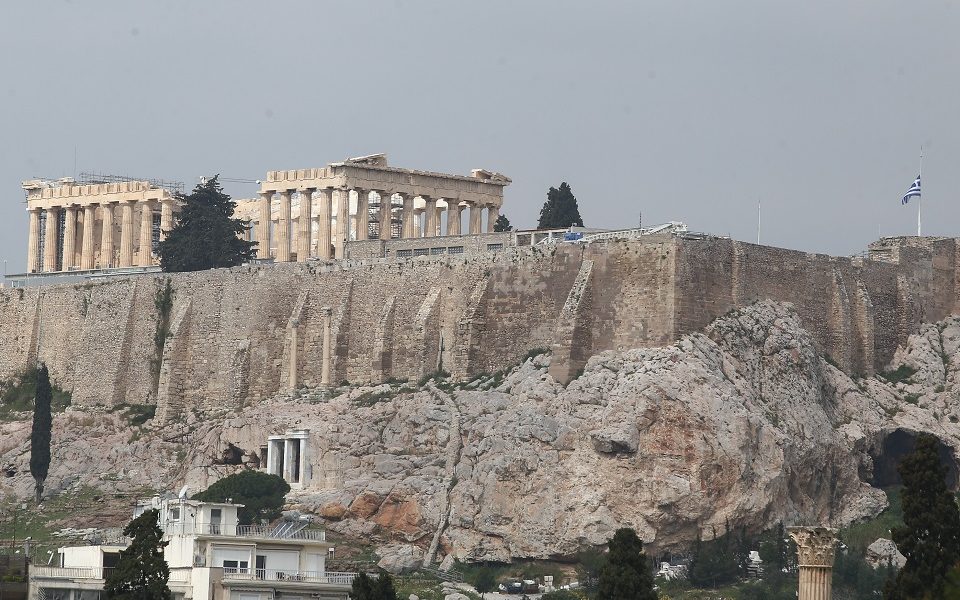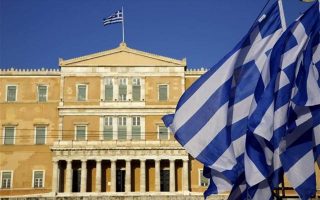The nation lowered its flags and bowed in respect to a great Greek

A lot has been said about Manolis Glezos, the proud Greek who was the first to publicly stand up to the Nazis and humiliate Hitler by taking down the swastika flag from the Acropolis.
He was a symbol of the resistance, captured and tortured by the Germans, but also, unfortunately, by the Greeks later, becoming sick with tuberculosis, a man who was branded a spy and sentenced to death. He was a political prisoner whose release was championed by eminent international figures from Charles de Gaulle to Albert Camus, Jean-Paul Sartre and Pablo Picasso.
Glezos had the kind of force of spirit that is so sadly lacking today and, in spite of his hardships, he never succumbed to fanaticism. A relatively recent case in point was an incident three years ago when the then leftist parliament speaker tried to prevent the German ambassador in Athens at the time, Peter Schoof, from laying a wreath at the memorial of the World War II massacre in Distomo. Standing in front of the officials gathered to commemorate the 1944 massacre by the Nazis, Zoe Konstantopoulou verbally attacked the diplomat, saying that Germany needed to compensate the families of the victims.
That was when Glezos stepped in. The symbol of the Greek struggle against the Third Reich took Schoof by the hand, handed him the wreath and urged him to go ahead and lay the wreath and pay his respects, as he had intended. The German ambassador appeared hesitant at first, but politely went ahead and laid the wreath paying tribute to the victims of the atrocities committed by his ancestors. “The child of criminals, regardless of the crimes committed by his father and mother, is not responsible,” Glezos said shortly after in a speech, proving that he knew how to forgive people, whole peoples, and different generations.
Glezos survived two death sentences, torture and exile, yet he never broke or lost his ideological identity. Beyond and above party politics, he managed to become one of the last emblematic figures of Greece’s modern history, a man who had the admiration and respect even of his ideological rivals.
The statement by the prime minister, a center-right leader, following Glezos’ death, expressed the prevalent sentiment: “The nation lowers its flags to mark the passing of a great Greek, of the man who was the first to remove the symbol of the oppressor from the Acropolis and who thus emerged as a symbol of our free nation.”
Glezos was strong and, yes, also ready to put up a fight when it mattered, where it counted: in 1941, not in 2017.
The model of a true patriot and a real fighter, he represented a generation that was genuinely committed to Greece, to freedom and to democracy.
As a young man, 79 years ago, he took the Nazi flag down from the Acropolis. Yesterday, as he was lowered into the Attic earth, the Greek flag flew at half-mast above the Sacred Rock. The nation lowered its flags and bowed its head in respect to a great Greek.




